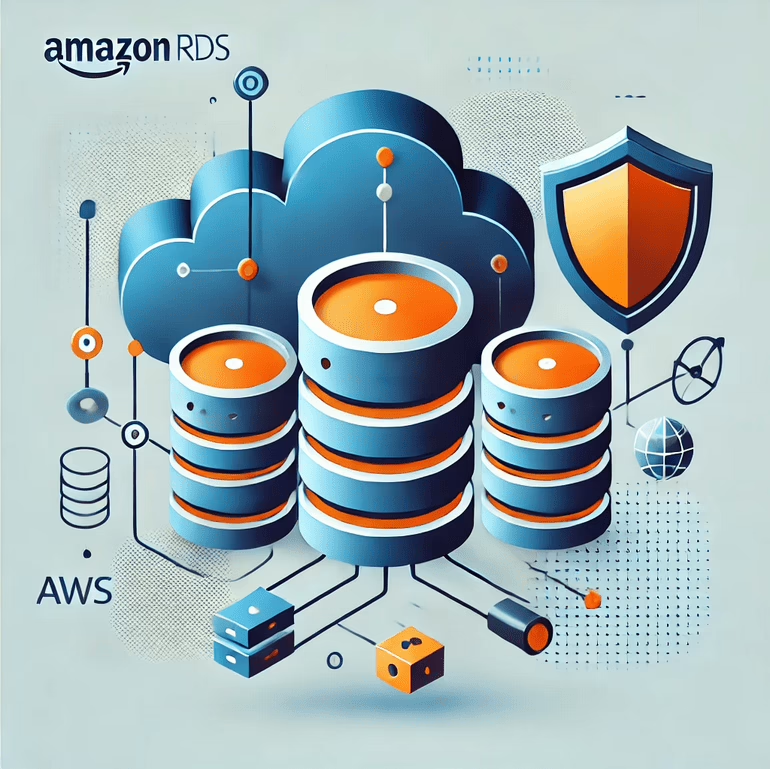In the intricate world of modern enterprise, databases are the beating heart of nearly every application and business process. But managing traditional databases—with tasks like provisioning hardware, patching software, and performing backups—can be a complex, time-consuming, and resource-intensive endeavor. This is where Amazon Relational Database Service (RDS) steps in, fundamentally transforming how businesses manage their relational databases in the cloud.
Amazon RDS is a fully managed service that makes it easy to set up, operate, and scale a relational database in the cloud. It supports a range of popular database engines, including Amazon Aurora, PostgreSQL, MySQL, MariaDB, Oracle, and SQL Server. By automating burdensome administration tasks, RDS frees up valuable time for developers and IT teams to focus on innovation and higher-value activities.
Whether you’re a business leader striving for greater agility and reduced operational costs, or a tech professional eager to master cloud-native database management, understanding the power of Amazon RDS is essential. Let’s delve into how RDS simplifies database management, driving efficiency and success for both organizations and individual careers.
For Enterprise Leaders: How Does Amazon RDS Drive Business ROI and Operational Efficiency?
For senior managers, directors, VPs, and C-suite executives, optimizing database operations directly impacts application performance, resource allocation, and overall business agility.
- Direct Answer: Amazon RDS drives significant ROI by automating routine database administration, ensuring high availability and scalability, and providing robust security features. This leads to reduced operational costs, faster application development and deployment, improved application performance, and enhanced business continuity, freeing up valuable IT resources for strategic initiatives.
- Detailed Explanation and Supporting Evidence:
- Reduced Operational Overhead: RDS handles tasks like hardware provisioning, database setup, patching, and backups. This dramatically lowers the administrative burden on your IT and database administration (DBA) teams, allowing them to focus on schema design, query optimization, and application development—activities that directly drive business value.
- Example: A SaaS company migrated its customer data to RDS, reducing the time spent on database maintenance by 40%, allowing their engineers to focus on new feature development, leading to faster product innovation.
- Cost Efficiency: With a pay-as-you-go model, you only pay for the database capacity you consume, eliminating large upfront hardware investments. Automated scaling features also prevent over-provisioning, optimizing costs.
- High Availability and Disaster Recovery: RDS offers built-in features like Multi-AZ (Availability Zone) deployments, which automatically fail over to a standby replica in another physical location if the primary instance fails. This ensures minimal downtime and robust disaster recovery capabilities for mission-critical applications.
- Scalability on Demand: Easily scale compute and storage resources up or down with just a few clicks or API calls. This elasticity means your database can handle sudden traffic spikes or rapid data growth without performance bottlenecks, ensuring a smooth customer experience.
- Enhanced Security: RDS provides multiple layers of security, including network isolation (VPC), encryption at rest and in transit, and integration with AWS Identity and Access Management (IAM) for granular access control, protecting your sensitive data.
- Reduced Operational Overhead: RDS handles tasks like hardware provisioning, database setup, patching, and backups. This dramatically lowers the administrative burden on your IT and database administration (DBA) teams, allowing them to focus on schema design, query optimization, and application development—activities that directly drive business value.
Curate Partners’ Consulting Lens: We observe that organizations leveraging Amazon RDS effectively accelerate their cloud adoption and significantly reduce their database operational burden. Our consulting services help businesses design, migrate to, and optimize their RDS deployments for maximum performance and cost efficiency.
For Tech Professionals (Data Engineers, Data Scientists): How Can Mastering Amazon RDS Advance Your Career?
For data engineers, data scientists, and developers working with databases, proficiency in Amazon RDS is a highly sought-after skill that underpins modern cloud architectures and data strategies.
- Direct Answer: Mastering Amazon RDS equips you with essential skills in cloud-based relational database management, performance optimization, and integrating databases within the AWS ecosystem. This makes you a critical asset for roles such as Data Engineer, Cloud Engineer, Database Administrator (Cloud), and Data Scientist working with cloud-native data pipelines and applications.
- Detailed Explanation and Supporting Evidence:
- Cloud-Native Database Management: You’ll gain practical experience in deploying, configuring, and managing relational databases entirely within a cloud environment, moving beyond traditional on-premises setups.
- Performance Tuning: While RDS automates many tasks, understanding how to optimize database performance (e.g., query optimization, indexing, instance sizing) within the RDS context remains a valuable skill.
- High Availability and Disaster Recovery: You’ll learn to implement and manage highly available database solutions using RDS Multi-AZ and read replicas, crucial for building resilient applications.
- Integration with AWS Services: RDS seamlessly integrates with other AWS services like Amazon S3 (for backups), AWS Lambda (for event-driven data processing), Amazon CloudWatch (for monitoring), and AWS Glue (for ETL). This knowledge allows you to build comprehensive cloud data solutions.
- Data Migration: You’ll gain experience in migrating existing databases to RDS, a common requirement for organizations moving to the cloud.
- Career Versatility: Expertise in RDS is applicable across various industries and opens doors to roles in cloud architecture, data platform engineering, and backend development.
Curate Partners’ Talent Focus: We connect skilled Amazon RDS and AWS data professionals with leading companies building and maintaining cutting-edge cloud-native data infrastructure, providing opportunities to work on transformative projects.
For Enterprise Leaders: Is Amazon RDS Secure, Scalable, and Compliant for Enterprise Needs?
When entrusting critical business data to a cloud service, enterprises demand unwavering assurances regarding data security, the ability to scale seamlessly, and adherence to regulatory compliance.
- Direct Answer: Amazon RDS is designed with enterprise-grade security features, offers elastic scalability to meet fluctuating demands, and supports various industry compliance standards, making it a robust and reliable choice for even the most stringent enterprise requirements.
- Detailed Explanation and Supporting Evidence:
- Robust Security: RDS provides network isolation via Amazon VPC, encryption at rest using AWS KMS, encryption in transit using SSL/TLS, and integration with AWS IAM for fine-grained access control. These features help you meet stringent security policies.
- Elastic Scalability: Scale compute resources (CPU, RAM) and storage independently, allowing you to adapt to workload changes instantly. Features like Auto Scaling for Aurora further automate this process, ensuring performance without manual intervention.
- Compliance: RDS helps you meet various compliance requirements, including HIPAA, GDPR, PCI DSS, SOC 1, 2, and 3, ISO 27001, and more. AWS provides comprehensive documentation and tools to support your compliance efforts.
- Reliability and Automated Backups: Automated backups, point-in-time recovery, and snapshots ensure your data is always protected and can be restored quickly in case of accidental deletion or corruption.
Curate Partners’ Consulting Lens: We guide enterprises through secure and scalable Amazon RDS implementations, ensuring seamless integration with their existing IT landscape and full adherence to industry compliance standards.
Conclusion: Amazon RDS – The Foundation for Modern Data Management
Amazon RDS is more than just a database service; it’s a strategic enabler for modern enterprises seeking agility, efficiency, and innovation in their data management. For businesses, it translates into significant cost savings, superior application performance, and robust data resilience. For tech professionals, it’s a vital skill set that opens doors to impactful roles in cloud engineering, data architecture, and database administration within the dynamic AWS ecosystem.
By unlocking the power of Amazon RDS, organizations and individuals can confidently build and manage powerful, scalable, and secure data solutions that drive unprecedented success in the cloud era.

